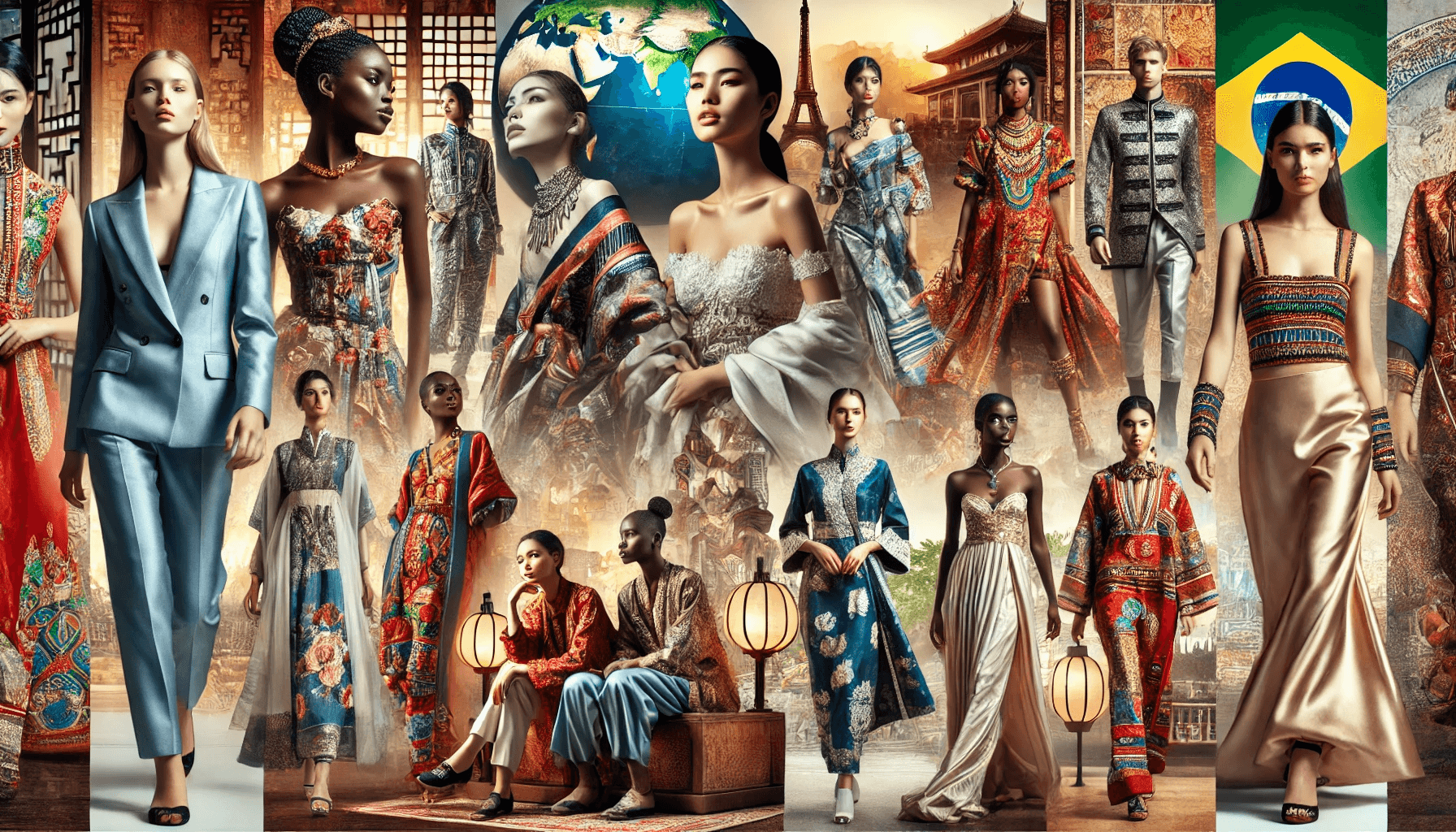

Editor: Sophia Bennett
Fashion is a universal language, transcending borders and cultures to weave a rich tapestry of styles, fabrics, and techniques that define the zeitgeist of our global society. In today’s interconnected world, the impact of global influences on fashion trends is profound, shaping how designers create and consumers dress. This exploration into cultural couture reveals how these diverse influences are not just shaping modern fashion but are also steering the industry toward innovative and sustainable practices.
Fashion trends shaped by global cultures have become the norm rather than the exception in the contemporary fashion scene. Designers and brands are increasingly drawing inspiration from a plethora of cultures, integrating traditional motifs with modern aesthetics to create something uniquely compelling. This fusion is evident in the collections of major fashion houses that showcase kimonos, saris, and African prints in ways that resonate with a global audience. The inclusion of such diverse elements not only enriches the fashion landscape but also promotes cultural appreciation and understanding.
In an era dominated by rapid technological advancement, fashion technology innovations are revolutionizing the industry. From 3D printing of garments to AI-driven design processes, technology facilitates a new wave of creativity and efficiency. This tech-infused approach is not limited to design alone; it extends to how fashion is marketed and consumed. Virtual reality fashion shows and digital fittings are just the beginning of how technology is merging with fashion to enhance the consumer experience in global fashion retail market trends.
As the conversation around environmental sustainability grows louder, the fashion industry is under scrutiny for its practices. Sustainable fashion practices worldwide are not just a trend but a necessity that brands are beginning to address more seriously. From utilizing eco-friendly materials like organic cotton and recycled polyester to adopting zero-waste production methods, the industry is exploring ways to reduce its carbon footprint. Fashion industry sustainability reports indicate a positive trend towards more responsible fashion, with more designers and brands committing to sustainable couture trends.
Understanding consumer behavior in global fashion markets is crucial for brands aiming to succeed on an international scale. Today’s consumers are well-informed and value-driven, often seeking brands that represent their ethical and aesthetic values. The demand for culturally inclusive and sustainably made products is shaping fashion retail strategies for global markets. Brands that can navigate these complex consumer dynamics are those that find success across diverse markets.
The cultural impact on the fashion industry is immense, influencing everything from design to marketing strategies. Cross-cultural fashion influences are particularly evident in how they celebrate and incorporate elements from various cultures, creating a richer, more diverse industry. This inclusivity not only enhances the creative landscape but also challenges the industry to be more thoughtful about representation and authenticity.
Looking forward, the synergy between cultural diversity in fashion design and sustainability seems to be setting the stage for the future of fashion. International fashion market analysis suggests that as markets become more interconnected, the ability for brands to adapt and innovate in line with global trends will determine their longevity and relevance. Moreover, as digital and technological advancements continue to evolve, they will play a pivotal role in how fashion is created, marketed, and consumed.
The dialogue between different cultures through fashion highlights the beauty and complexity of our global society. It reminds us that fashion is not just about clothing but about communication, culture, and connectivity. As we continue to navigate these global influences, the fashion industry stands as a testament to human creativity and resilience, continually evolving to reflect the world’s dynamic spirit. This ever-changing landscape of cultural couture not only shapes modern fashion but also mirrors the ongoing narrative of our interconnected lives.